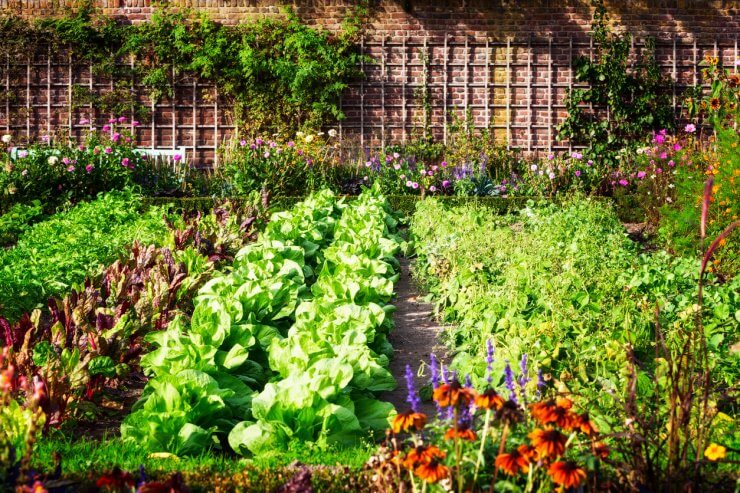
While you may only need sunlight, soil, and water to grow a garden, adding in some organic fertilizer for vegetables and herbs can kick things up a notch. Think of it as the multivitamin you take to boost your energy a bit or the treats you give your dog that helps with that shiny coat. It’s just that little something extra that takes your garden from bountiful to calling your neighbors to come get some squash because you have 5 tons of it.
I’ve gone to the garden supply store and picked up my fair share of fertilizer. But why buy it when you can make fertilizer yourself? Admittedly, it is very convenient to buy, and it’s certainly less work. It’s also more expensive than making your own. Plus, it’s kind of fun to take the DIY approach!
What’s even IN organic fertilizer?
Okay, let’s start with the obvious question: why organic? The really short answer is that organic gardening practices are better for the environment. The slightly longer answer is that all the chemicals you put into the soil end up in your plants, to some extent. Never mind the fact that I have my hands in that soil. And that’s not even getting into the bigger issues.
Will you notice a big difference between organic and non-organic fertilizers? Non-organic fertilizers work more directly and quickly, whereas organic fertilizers work by creating healthier soil, so they take some time. It also helps plants develop resistance to disease and pests. And it benefits the microbes and beneficial insects in your garden.
But what, exactly, is IN organic fertilizers for vegetables? If this was a television show, this is where a big “Biology Lesson” banner would pop up. Here are the basics.
Like us humans, plants need a variety of macro and micronutrients. For us, those macronutrients are carbohydrates, proteins, and fats, while the micronutrients include vitamins and minerals like your B vitamins and calcium. For plants, macronutrients include nitrogen and potassium; micronutrients include iron, manganese, and so on.
In other words, plants need a healthy diet just like we do! You can feed your veggies either by mixing fertilizer into the soil or by adding it to the water when you water your plants.
You can buy any number of organic fertilizers either online or from your garden supply store. Some may only have a few fertilizing ingredients, like earthworm castings, forest products, and kelp meal. You may also find fertilizers that include chicken droppings or cattle manure, crushed shells from clams and oysters, fish waste, and bone meal.
Making your own organic fertilizer for vegetables and herbs
It’s not only possible to make your own organic fertilizer for vegetables and herbs in your garden, it’s incredibly easy. You don’t need to search out chicken droppings or crushed oyster shells. In fact, all you need is a compost heap, or maybe one of those cool composting tumblers. Making compost is as simple as discarding your vegetable food waste and yard waste, giving it some time to break down, and then adding it to your soil. It makes a great fertilizer, and it works exponentially. How?
Earthworms dig compost, both literally and in a colloquial sense. Making your soil attractive to worms means that they’ll help you aerate the soil as they burrow around, and they’ll add nutrients to the soil in the form of castings (which really just means worm poop).
You can add a little Epsom salt to your compost, as well; it’s a great way to add magnesium to the soil. All in all, making your own fertilizer is easy, pretty much free, and it will add to the long-term health of your garden. That sounds like a winning proposition to me!
Discover 7 top tips for growing, harvesting, and enjoying tomatoes from your home garden—when you access the FREE guide The Best Way to Grow Tomatoes, right now!
Have you made your own organic fertilizer? Care to share your recipe in the comments below?





Thank you for sharing the informative article.
You make it sound easy, but it is really an art to make compost. For instance you suggest piling grass clips, yard and kitchen waste, and leaves. However there is no mention of things that should not go into the compost, such as diseased plants, or roots of invasive plants such as couch grass. Piling straight grass will not make good compost, but rather a smelly slimy mess. You mention a compost tumbler, but not everyone has a big enough garden to justify the cost, and then you have to turn the pile yourself. Compost forms faster in ratio to the size of the ingredients.. For instance , corn stalks left whole take forever to break down, and would make the compost pile hard to turn.
You make some great points! We have lots of articles that are more in-depth about creating your own compost in our Compost category with those specific nuances 🙂